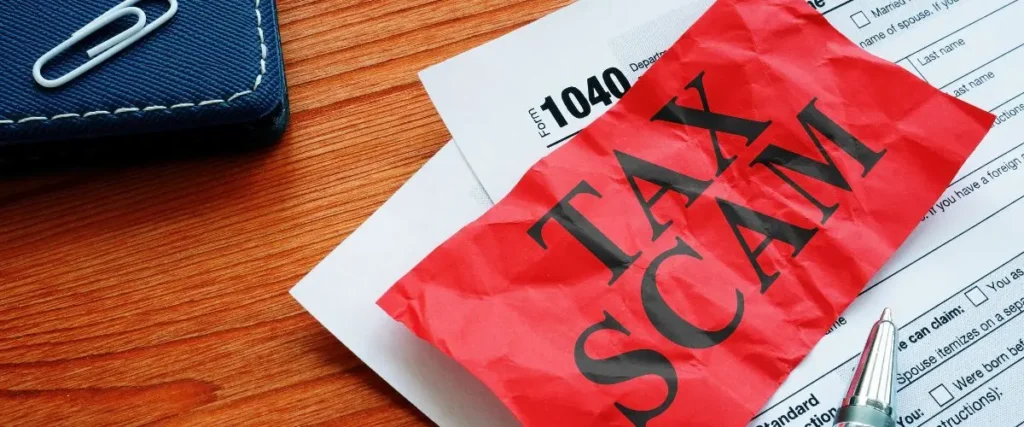Phishing scams have become increasingly common in today's digital age. These scams are designed to trick unsuspecting individuals into revealing their personal information, such as passwords, credit card numbers, or social security numbers. While most email providers have built-in spam filters to catch these scams, some still manage to slip through and end up in our junk folders. In this blog post, I will share the 5 worst phishing scams that I have encountered in my junk folder.
The “Bank Account Verification” Scam

This phishing scam is designed to target individuals who have accounts with banks or financial institutions. The email typically claims that there has been suspicious activity on your account and that you need to verify your information to prevent unauthorized access. The email will often include a link that takes you to a fake website that looks identical to your bank's official site. Once you enter your login credentials, the scammers will have access to your account.
To avoid falling victim to this scam, it is important to remember that legitimate banks will never ask you to verify your account information via email. If you receive an email claiming to be from your bank, it is best to contact them directly using a phone number from their official website.
The “Package Delivery” Scam

This phishing scam takes advantage of the increasing popularity of online shopping and package deliveries. The email will claim that there was a problem with the delivery of a package and that you need to provide additional information to resolve the issue. The scammers may ask for your address, credit card details, or even request a payment to reschedule the delivery.
It is important to note that scammers have become increasingly sophisticated in their approach. They may use convincing logos, email templates, and even mimic the language and tone of legitimate companies to deceive unsuspecting victims. Therefore, it is crucial to be vigilant and not solely rely on the appearance of an email to determine its authenticity.
Another red flag to watch out for is the urgency or pressure created by the scammers. They may claim that failure to provide the requested information or payment immediately will result in the package being returned or destroyed. This tactic is designed to make you act impulsively without carefully considering the legitimacy of the email, put that mail in junk folder right away!
Furthermore, it is advisable to avoid clicking on any links or downloading any attachments in suspicious emails. These could contain malware or lead you to a fake website where your personal information can be stolen. Instead, manually type the website address of the delivery company into your browser or use a trusted search engine to find their official website.
To protect yourself from this scam, always double-check the email address of the sender. Legitimate delivery companies will typically use a domain that matches their official website. If you are unsure about the authenticity of an email, it is best to contact the delivery company directly using their official contact information.
By staying informed and cautious, you can protect yourself from falling victim to the “Package Delivery” scam and other phishing attempts. Remember to always verify the authenticity of emails, avoid sharing personal information or making payments without proper verification, and report any suspicious activity to the appropriate authorities.
The “IRS Tax Refund” Scam

During tax season, scammers often take advantage of individuals expecting a tax refund from the IRS, and this phishing scam could happen. The email will claim that there was an error in the processing of your refund and that you need to provide additional information to receive your money. The scammers may ask for your social security number, bank account details, or even request a payment to resolve the issue.
It is important to remember that the IRS will never initiate contact with taxpayers via email. If you receive an email claiming to be from the IRS, it is best to delete it and report it to the IRS directly.
One way to verify the authenticity of an email claiming to be from the IRS is to check the sender's email address. The IRS typically uses email addresses that end with “@irs.gov.” If the email you received has a different domain, it is likely a scam.
Another red flag to watch out for is poor grammar and spelling errors in the email. Legitimate organizations, including the IRS, have strict quality control measures in place, and their communications are usually free of such mistakes.
If you are unsure about the validity of an email, it is always best to err on the side of caution. Instead of clicking on any links or providing personal information, contact the IRS directly using the contact information available on their official website. They can verify if the email is genuine or a scam.
By staying informed and being cautious, you can protect yourself from falling victim to the “IRS Tax Refund” scam and other similar phishing attempts. Remember, the IRS will never ask for personal information or payment via email, so any email requesting such information should be treated with suspicion. If it seems even a bit like a scam, just put it in your junk folder.
The “Tech Support” Scam

This phishing scam targets individuals who may be experiencing technical issues with their devices or software. The email will claim to be from a reputable tech support company and offer assistance to resolve the problem. However, the scammers are actually trying to gain remote access to your device or trick you into providing sensitive information.
If you encounter technical issues with your devices, it is best to seek assistance from a trusted source, such as the official support channels provided by the device manufacturer or software developer. Avoid clicking on any links or downloading any attachments from unsolicited emails. If it seems slightly like a scam, just put it in your junk folder right away.
The “Lottery Winner” Scam

This phishing scam preys on individuals' desire to win a large sum of money. The email will claim that you have won a lottery or sweepstakes and that you need to provide personal information to claim your prize. The scammers may ask for your bank account details, social security number, or request a payment for processing fees or taxes.
It is important to remember that legitimate lotteries or sweepstakes will never ask winners to pay fees or provide personal information via email. If you receive an email claiming that you have won a prize, it is best to delete it and report it to the appropriate authorities.
When it comes to the “Lottery Winner” scam, scammers often use sophisticated tactics to make their emails appear legitimate. They may include official-looking logos, use professional language, and even provide contact information that seems genuine. However, it is crucial to remain vigilant and not fall for these tricks.
One red flag to watch out for is if the email asks for personal information that is not typically required for claiming a prize. Legitimate lotteries or sweepstakes will usually only ask for basic contact details, such as your name and address. If an email asks for sensitive information like your social security number or bank account details, it is a clear indication that it is a scam.
Another common tactic used by scammers is to create a sense of urgency. They may claim that you have a limited time to claim your prize or that there are other winners waiting in line. This urgency is designed to make you act quickly without thinking rationally. Remember, legitimate lotteries or sweepstakes will not pressure you to provide personal information or make immediate payments.
It is also important to be cautious of any email that asks for payment to claim your prize. Legitimate lotteries or sweepstakes do not require winners to pay any fees or taxes upfront. If you are asked to make a payment, it is a clear sign that you are dealing with a scam. Do not provide any financial information or send money to these scammers.
If you receive an email claiming that you have won a lottery or sweepstakes, take the time to independently verify its authenticity. Contact the official lottery or sweepstakes organization directly using their official website or contact information. They will be able to confirm whether you are indeed a winner or if it is a scam, and if it seems slightly like a scam, just put it in your junk folder.
Remember, scammers are constantly evolving their tactics, so it is essential to stay informed and educated about the latest scams. By being aware of the “Lottery Winner” scam and other phishing techniques, you can protect yourself from falling victim to these fraudulent schemes.
Phishing Scams In Nutshell
Phishing scams in your junk folder, like fake bank alerts and package delivery issues, deceive with urgency and mimicry. IRS refund scams and tech support cons exploit trust. Lottery scams promise big winnings, but demand personal information or fees. Stay vigilant, verify emails, and report suspicious activity to avoid falling victim.
To save yourself from scams and unwanted hackers, try VPNs. We are experts in VPNs and related tech products. You can choosevpns from our site Choosevpn for the betterment and safety of your personal information. Stay tuned.
Read more tech related blogs for more awareness on ChooseVPN.




